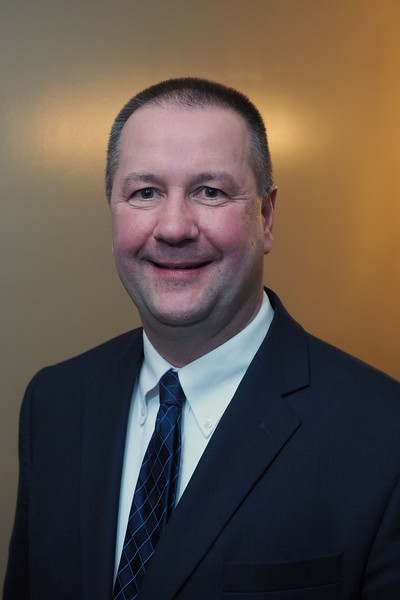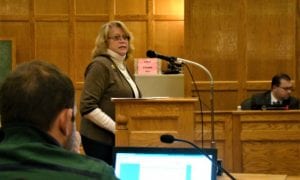
Ward 6 City Councilor William Onyski (WNG file photo)
WESTFIELD – The Legislative & Ordinance Committee took up several motions that have been before the City Council since March of last year.
The first was to accept the fourth paragraph of Mass. General Law (MGL) Chapter 40 Section 5B, which allows cities and towns to create one or more special purpose stabilization funds.
The second motion before the committee was to establish a special purpose stabilization fund, entitled “road and sidewalk repair and maintenance stabilization fund.”
The third and fourth motion in the series dedicated local option meals tax and local option occupancy tax funds to the stabilization fund.
L&O committee chair William Onyski said that the goal of all of the motions was to set up a special fund for hotel and meals tax revenue to go to sidewalks and roads.
Onyski said the committee would first start by voting whether to accept the new paragraph in the MGL, brought by the Municipal Modernization Act in 2017, to allow cities and towns to set up the stabilization funds and dedicate resources to them. He said the committee would then consider the motion to create the road and sidewalk repair and maintenance stabilization fund.
“We can create the funds if we vote MGL, but the rub is putting the money into the funds,” Onyski said. He then asked Assistant City Solicitor Shanna Reed to give the Law Department’s opinion on the allocation of the funds.
“You’re correct, in the opinion of our office and confirmed by the Department of Revenue, we have to follow the City Charter, in which the Mayor recommends an appropriation and the City Council approves that,” Reed said, adding that the Council can approve or reject an appropriation, but not abrogate the Mayor’s right to appropriate.
“Basically, you can set the funds up, but the Mayor has to appropriate,” said Ward 3 Councilor Mike Burns, who sits on the L&O Committee.
Reed added that when the hotel and meals taxes were set up, the idea was to put them towards roads and sidewalks. In response to Burns asking whether the towing fund, police department, fire department and ambulance funds worked the same way, Reed said those funds are proprietary, but taxes generally go to the general fund.

Ward 3 Councilor Andrew K. Surprise (WNG File Photo)
Ward 3 Councilor Andrew K. Surprise, who sponsored the series of motions along with several other councilors, said he had documentation from the state suggesting that the City Council could dedicate the revenue stream into the stabilization fund.
Reed said in the Law Department’s opinion, although the language states that the city, or town can dedicate the funding; “in our opinion, that means the city as a whole,” she said, adding the Council can send a request to the Mayor to put in the amount received from the taxes into the fund. She said the legislature has the authority to create the fund, but not to appropriate.
Onyski said the Council could also ask the Mayor to allocate the revenue to roads and sidewalks, making the stabilization fund unnecessary. In 2018, the city spent nearly $5 million on roads from different sources of funding including the meals tax, according to a meeting of Mayor Brian P. Sullivan and department heads in November.
Surprise said without the fund, the Mayor can divert the funds.
L&O member Nicholas J. Morganelli, Jr. asked if it were a request from the City Council, would it have to be made every year. Reed said each budget cycle would be a new appropriation of those funds.
“One you dedicate the revenue stream, it’s dedicated for three years,” Surprise said.
“What this boils down to is the Mayor has to appropriate the money. It still takes the Mayor’s input into this,” Onyski said.
Reed said she created an order to combine the first two motions, accepting the MGL to create the fund, and establishing the road stabilization fund. Morganelli made a motion for a positive recommendation to accept the state statute and create the road stabilization fund, which passed 2-1. Onyski said he voted no for the reason that the Mayor still needs to appropriate the funds.
Morganelli then moved to remove without action the motion to dedicate meals tax revenue to the road stabilization fund; and Burns made a similar motion to remove without action the dedication of local occupancy taxes to the fund. Both motions passed 3-0.






